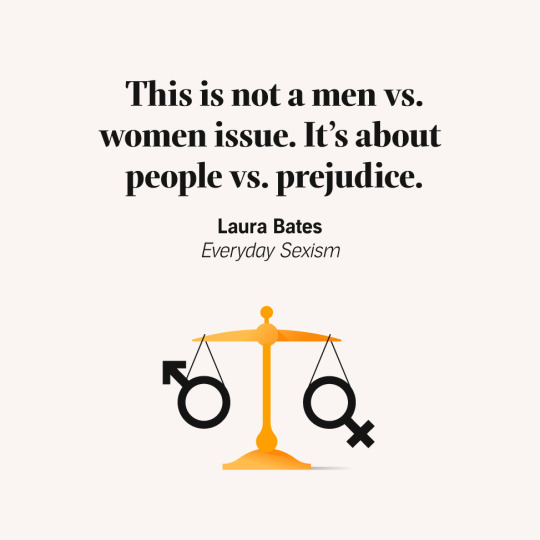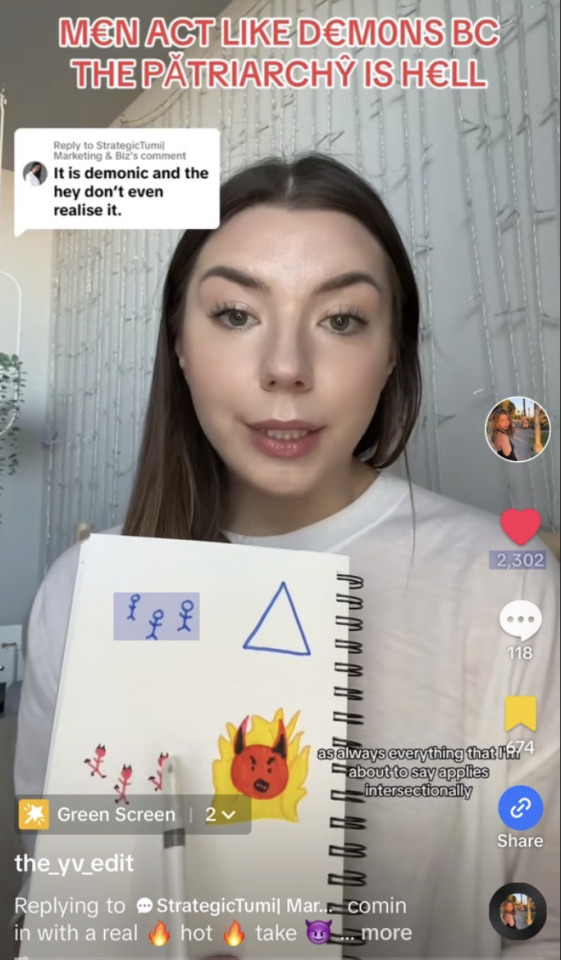#4b
Text
The rise in attention to the South Korean 4B movement these last couple days is so thrilling. I see so many women talking about it on tiktok, entire comment sections flooding with “4B movement now” whenever a woman complains about her shitty moid of a partner, coupled with detailed chroniclings of the ever-decaying state of the male loneliness epidemic.
#terfblr#radical feminism#terfsafe#radblr#gender critical#radical feminist safe#misogny#sexism#4b#4b movement#female seperatism#separatism
2K notes
·
View notes
Note
it's not accurate to act like the feminist movement in rok is free of terfs/only has incidental issues with transmisogyny. there's rampant transmisogyny in rok feminism. there's not a lot of english-language scholarship about it, but look up the kind of rhetoric and policy that was on sites like megalia/WOMAD, or the trans woman who was accepted to a women's university but got harrassed into withdrawing by terfs/conservatives in 2020. i'm sure you mean well but your post is irresponsibly misleading about the content and ideology of current-day korean feminism

I never said RoK doesn't have TERFs or a widespread radfem problem.
We in the USA have them and depending on where you are a transwoman might get the same treatment. There have been 538 pieces of anti-trans legislation presented in the USA this year alone. Florida specifically is turning into a straight up anti-trans fascist state.
TERF/radfem ideology is gaining ground in the USA and theyve actually been the people pushing a lot of these bills through with supporters like the heritage foundation. For example:
Several other states are starting to follow suit now that they see whats possible. US progress is deeply turning backwards. This is largely being allowed to happen by a public who isn't fighting back. The only people really talking about any of this is in fact trans people or the people close to them.
That said, radfems and such shouldn't be made out to be the face of feminism.
They're not and I would never say they are because there are Actual feminists fighting against them and trying to stop them from co-opting feminism.
Radfeminism is gaining ground, sure, but I'd still never say that it's representative of US feminism or even feminism really.
Feminism is about gender equality. TERFs/Radfeminism is about gender separatism, defining women by their sexual ability, and catering to patriarchal views of gender as a "rebellion" against actual feminism. Ask a radefem what defines them and they'll say their uterus.
Does your ability to create babies for the patriarchy define you as a woman? Of course not.. especially when feminists have been seeking to destroy that idea.
How can you be feminist and fundamentally disagree with it's premise?

It's more like anti-feminsim than anything else. Especially when we consider that feminists have fought generations to be defined by more than their sex, that the genders are equal and have equal abilities, that women have a Right to be in spaces considered for men, and try so hard to fight against the way that patriarchy defines women as maids, wives, and breeders who should be pretty and thin.
Anyone who steps outside that definition should be celebrated as a success story. Proof that the gender binary is bigger and more complicated than believed. Proof that women and womenhood are too expansive and too complex to be limited by such a small minded definition.
That to say.... Just because it's a massive problem...doesn't mean that radfems are the face of feminism. And saying that doesn't mean I'm ignoring their existence either.
I just wouldn't ever ever validate them successfully co-opting feminism. And I wouldn't Let them have it either by saying "well I guess there's so many radfems in this movement that I guess it's their's now" either.
All this to say, I'm aware. It was actually kinda difficult to find resources on the 4b movement that weren't transphobic.
The point is fighting patriarchy tho right? That means fighting transphobia. And since there ARE Korean women and other people doing that and talking about it, I'm going to focus on progress. Not whatever the fuck radfems are doing.
And I'm going to trust that as feminism makes more strides in gender equality that the groups of radfems will shrink. And that are more people will see radfems/TERFs less and less like feminists and more and more like the Patriarchy Preservers they are.
95 notes
·
View notes
Text
I hope no one is falling for the same horseshit Korean misogynist men try to barf up when they want “logical” westerners to be on their side regarding 🤏. The thing that always strikes me when they fear-monger about the defunct megalia website is this: if these women writing “cruel” things online and engaging in mirroring techniques is enough to brand them man-haters and have them become some eternal boogeywomen, why aren’t the men stabbing, killing, raping, witch-hunting, sexually trafficking and beating women - because they are women - branded as extreme women-haters in turn? Surely these targeted attacks that have happened, and continue to happen frequently, are enough to label these men extremist misogynists whose actions and texts are dangerous to Korean society? But instead, as we have seen recently, their deranged misogynist thoughts are carefully listened to and their delusions are catered to by major companies.
Secondly, these guys like to portray the women they go after as having dangerous opinions by saying, oh the pinched fingers means they’re megal and therefore it’s a secret signal for all these “hateful” thoughts. However the “radical, hateful thoughts” the men trawl through these women’s social medias to find have always ended up being basic women’s rights: the right to have an abortion, being against sex trafficking, being against molka, condemning misogynist hiring practices, etc. These extremely basic tenets of feminism are what these men consider radical and dangerous to society. When they try to pull the wool over your eyes by saying “feminism is different in korea it’s extreme and evil” THESE are the things they mean. Saying “it’s a megal symbol for crazy female supremacy” is a smokescreen for misogynist men to punish women who want basic human rights.
The smaller group of women engaging in 4B there try to live their lives in a female-centered way, away from men. These are the women that misogynist men revile so much that simply existing as a woman with short hair is enough for them to violently attack you with a knife. So how does this make sense? The women branded as evil misandrists live their lives avoiding men and uplifting other women. The men who hate women do the complete opposite: they go out of their way to physically and sexually assault women and get them fired from their jobs. The misogynists in that group who witch hunt women are not labeled extremists, but rather catered to by companies like Nexon. Don’t fall for their shit.
126 notes
·
View notes
Text

South Korean radical feminist poster 6B4T movement, 2020
910 notes
·
View notes
Text
i love the 4B movement
we need to make it global
29 notes
·
View notes
Text
A World Without Men: Inside South Korea’s 4B Movement
For Youngmi and many others who subscribe to its basic premises, 4B, or “practicing bihon,” is the only path by which a Korean woman today can live autonomously. In their view, Korean men are essentially beyond redemption, and Korean culture, on the whole, is hopelessly patriarchal — often downright misogynistic. A 2016 survey by the Ministry of Gender Equality and Family found the incidence of intimate-partner violence at 41.5 percent, significantly higher than the global average of 30 percent. While 4B’s adherents may hope to change society — through demonstrations and online activism, and by modeling an alternative lifestyle to other women — they are not trying to change the men whom they view as their oppressors. It is too soon to tell whether this movement can survive and thrive over the long haul. But its ideas and actions have already affected the country’s online discourse, its politics, and most of all, individual women’s lives.
“Practicing bihon means you’re eliminating the risks that come from heterosexual marriage or dating,” Yeowon, a 26-year-old office worker, told me on a café terrace in the seaside southern city of Busan. We talked over coffee and pastries, along with Yeowon’s girlfriend and another of their friends, all of them wearing wide black pants and black sweaters and sporting cropped short haircuts. Those risks Yeowon alluded to might seem familiar — trading career for child-rearing and housework, as well as the threat of physical violence — but in Korea, Yeowon said, marriage presents an existential threat.
98 notes
·
View notes
Text
Racism is definitely a factor in this 4B discourse, but I think there is something to be said of (ostensibly pro-trans) western cis feminists being so ready to accept political lesbianism as long as you dress it up in anything but 2nd-wave radfem aesthetics and don't use the dreaded L word.
I think most libfems have not seriously reckoned with their conception of gender as it relates to feminist praxis besides reblogging one "trans rights" post and letting trans women attend rallies. Pop feminists especially can't conceive of a world without patriarchy or gender and merely want to reform the cishet dating meta more in favor of (cishet) women.
Hence "omg this is just like Lysistrata" and "well WOMEN can participate in this since we make up 99% of the movement and you trans women can just do your own thing idc". "Majority" here is just a dogwhistle for "Principal Contradiction aka the only ones who matter".
16 notes
·
View notes
Text
By Hawon Jung
After trying for over a year to persuade more South Korean women to have babies, Chung Hyun-back says one reason stands out for her failure: “Our patriarchal culture.” Ms. Chung, who was tasked by the previous government with reversing the country’s plummeting birthrate, knows firsthand how tough it is to be a woman in South Korea. She chose her career over nuptials and children. Like her, millions of young women have been collectively spurning motherhood in a so-called birth strike.
A 2022 survey found that more women than men — 65 percent versus 48 percent — don’t want children. They’re doubling down by avoiding matrimony (and its conventional pressures) altogether. The other term in South Korea for birth strike is “marriage strike.”
The trend is killing South Korea. For three years in a row, the country has recorded the lowest fertility rate in the world, with women of reproductive age having fewer than one child on average. It reached the “dead cross,” when deaths outnumbered births, in 2020, nearly a decade earlier than expected.
Chung Hyun-back, who was South Korea’s gender equality minister in 2017-18, tried unsuccessfully to raise the country’s plunging fertility rate. Among the obstacles she says are to blame is the country’s “patriatchal culture."
Now, about half of the country’s 228 cities, counties and districts risk losing so many residents they might vanish. Day care centers and kindergartens are being converted into nursing homes. Ob-Gyn clinics are closing, and funeral parlors are opening. At Seoksan Elementary School, in rural Gunwi County, the student body has shrunk from 700 pupils to four. When last I visited, the children couldn’t even form a soccer team.
Young Koreans have well-documented reasons not to start a family, including the staggering costs of raising children, unaffordable homes, lousy job prospects and soul-crushing work hours. But women in particular are fed up with this traditionalist society’s impossible expectations of mothers. So they’re quitting.
President Yoon Suk-yeol, elected last year, has suggested feminism is to blame for blocking “healthy relationships” between men and women. But he’s got it backward — gender equality is the solution to falling birthrates. Many of the Korean women shunning dating, marriage and childbirth are sick of pervasive sexism and furious about a culture of violent chauvinism. Their refusal to be “baby-making machines,” according to protest banners I’ve seen, is retaliation. “The birth strike is women’s revenge on a society that puts impossible burdens on us and doesn’t respect us,” says Jiny Kim, 30, a Seoul office worker who’s intent on remaining childless.
Making life fairer and safer for women would work wonders toward reducing the country’s existential threat. Yet this feminist dream seems increasingly far-fetched, as Mr. Yoon’s conservative government champions regressive policies that only magnify the problem.
South Korea’s demographic crisis was once inconceivable: As late as the 1960s, women had six children on average. But the state, pursuing economic development, carried out an aggressive population control campaign. In about 20 years, women were having fewer than the 2.1 children needed for replenishment, a number that’s only continued to drop. The latest available data from South Korea’s statistics agency put the fertility rate at 0.81 for 2021; by the third quarter of 2022 it was 0.79.
Recent governments have indeed been alarmed by a rate that’s seemingly approaching zero. Over 16 years, 280 trillion won ($210 billion) has been poured into programs encouraging procreation, such as a monthly allowance for parents of newborns.
Many women still say nope. No wonder. There’s little escaping suffocating gender norms, whether in pregnancy guidelines to arrange clean undergarments for your husband before labor, or the dayslong kitchen drudgework for holidays like the Chuseok harvest festival. Married women are saddled with the lion’s share of chores and child care, squeezing new mothers so much that many give up professional ambitions. Even in dual-income households, wives daily spend more than three hours on these tasks versus their husband’s 54 minutes.
Discrimination against working mothers by employers is also absurdly common. In one notorious case, the country’s top baby formula maker was accused of pressuring female employees to quit after getting pregnant.
And gender-based violence is “shockingly widespread,” according to Human Rights Watch. In 2021, a woman was murdered or targeted for murder every 1.4 days or less, according to the Korea Women’s Hotline. Women have dubbed the act of ending a relationship without getting a vicious reaction a “safe breakup.”
But women haven’t passively accepted the toxic masculinity. They’ve organized raucously, from Asia’s most successful #MeToo movement to groups like “4B,” which translates to the “Four nos: no dating, no sex, no marriage and no child-rearing.” The country’s feminist movements have won the decriminalization of abortion and harsher penalties for an epidemic of spycam-porn crimes.
Many young Korean men, however, have declared themselves victims of women’s activism. President Yoon rose to power last year by leveraging this resentment. He echoed the dog whistle of men’s rights advocates, declaring that structural sexism no longer exists in South Korea and vowing tougher punishment for false reports of sexual assault.
Mr. Yoon’s government is removing the term “gender equality” from school textbooks and has canceled funding for programs to fight everyday sexism. “If you find gender equality and feminism so important, you can do it with your own money and time,” said one lawmaker in his party.
The government is also working to dismantle its own headquarters for women’s empowerment — the gender equality ministry. Established in 2001, it’s been transformative in normalizing parental leave for fathers and helping more women achieve workplace seniority.
Comments by the gender equality minister under the Yoon administration illustrate its abandonment of women. In September, Kim Hyun-sook rejected the idea that misogyny was at play when a Seoul Metro worker stabbed a female colleague to death in a subway bathroom after stalking her for years. Ms. Kim also initially declared that the rape and killing of a college student on campus last June was not violence against women and shouldn’t be used to fan “gender conflict.”
So far, none of the measures implemented by successive governments have flipped the trends in marriage and childbearing. Worse yet, the current government seems to be actively undermining efforts that gave women hope. “This is a historical regression,” says Ms. Chung, who was the gender equality minister from 2017 to 2018. Society can’t end the birth strike without acknowledging women’s grievances, she says.
Motivating Korean women to reconsider marriage and children involves infusing every aspect of their lives with agency and equality. A feminist approach would remove obstacles to motherhood simply by enforcing existing laws against workplace discrimination. It would destigmatize births outside of marriage and make domestic duties everyone’s responsibility. It would condemn gender violence as reprehensible. A feminist approach would admit there’s a systemic problem.
It’s clear that countries with a disproportionate division of child care or lacking national paid parental leave, like Japan and the United States, also have plunging fertility rates. It’s the same with China, where women inspired by South Korea started their own “Four nos” movement; government data this month reveals its population is shrinking, too. But countries with cooperative fathers and good family policies, like Sweden, or that recognize diverse companionships, like France, have been more successful at stabilizing or even bumping up births.
The United Nations projects that South Korea’s 51 million population will halve before the end of the century. Survival of the nation is at stake.
Hawon Jung (@allyjung) is the author of the forthcoming “Flowers of Fire: The Inside Story of South Korea’s Feminist Movement and What It Means for Women’s Rights Worldwide,” and a former Agence France-Presse reporter in Seoul. She splits her time between South Korea and Germany.
106 notes
·
View notes
Text
south koreans are right. every time a woman chooses to be with a man it's a loss for feminism
#i feel bad for het women#''if you don't want to be oppressed just don't date anyone'' is the sort of thing we used to say to homosexuals#it's only a choice to an extent. i'm not gonna deny that sexual/romantic relationships are an important part of the human experience#radical feminism#4b
9 notes
·
View notes
Text

she's literally me
9 notes
·
View notes
Text





عن حركة 4b النسوية في كوريا
https://shecandoanythingtranslateinarabic.blogspot.com/2023/03/4b.html
7 notes
·
View notes
Text
wonderful article about the spread of South Korean radical feminism!! i see everyone on radblr referencing them a lot, so i figured this would be a good source of info for those of you who don’t mind a little light academic reading & want to get a quick background. these women are truly inspirational, and i don’t say that lightly.
#direct the sexist libfems who accuse you of ‘white feminism’ here lol#my post#resources#escape the corset#4B#6b4t#radical feminism#radblr
51 notes
·
View notes
Text
Another silly little poll by me
#radical feminism#radblr#radfem#feminism#radfems do interact#radical feminist#rad fem#women deserve better#terf#feminist#trans exclusionary radical feminist#terfism#terfblr#terfsafe#radical fem#radicalfeminism#female separatism#febfem#4b#4b movement#adult human
4 notes
·
View notes
Note
I was reading the post you reblogged about women in Korea making a stand against makeup and patriarchal roles. I don't understand how supporting these women makes them a terf? I am not a terf, but, sometimes the world only listens to people are radical.
I'm not sure I understand the question.
I don't know if these women are trans exclusionary radical feminists. I have no idea what they think about trans people. And to be honest, I don't care.
Their battle for freedom as female people is valuable no matter what they think about other issues.
There are probably environmental activists who are homophobes. Their environmental activism is still valuable, even if they hated me personally. There are probably people who oppose war in Ukraine, or anywhere else, who are misogynists. They still oppose war and that is a value we share even if they hated me personally.
Societal movements have value even when they don't consider everything, even if the people don't care about every issue in the world, even if the people hold downright harmful opinions about other things. It's not like you have to include every issue in the world in your activism before you're allowed to act.
Also, I'm not exactly sure why this Korean feminist movement should be about trans women, center trans women or even include trans women in any way. Are trans women pressured to date and marry straight men and birth their children? If some trans women pass and live their lives perceived to be female, then yes, they will be judged by their appearance, and will face similar repercussions as women, but not all of their issues are shared by the 4B movement, which is allowed to focus on issues that affect females.
Anyways, I doubt there are many trans women who are true allies to these women and who would want to join a movement which generally promotes cutting your hair short and quitting make-up. Before asking does this movement exclude trans women, I want to ask what do trans women give to this movement? What will trans women do to free "female women", with their female issues that won't affect trans women?
20 notes
·
View notes
Text
i made this blog specifically to follow radfem blogs/tags but when i search radfem tags there's no option to follow, what's up with that? :^(
#radfem#radblr#radical feminism#radfems please interact#radfems do touch#osa radfem#4B#female seperatism
8 notes
·
View notes
Text
Hoping to God these women stay safe as they reject men in all aspects of their lives
20 notes
·
View notes